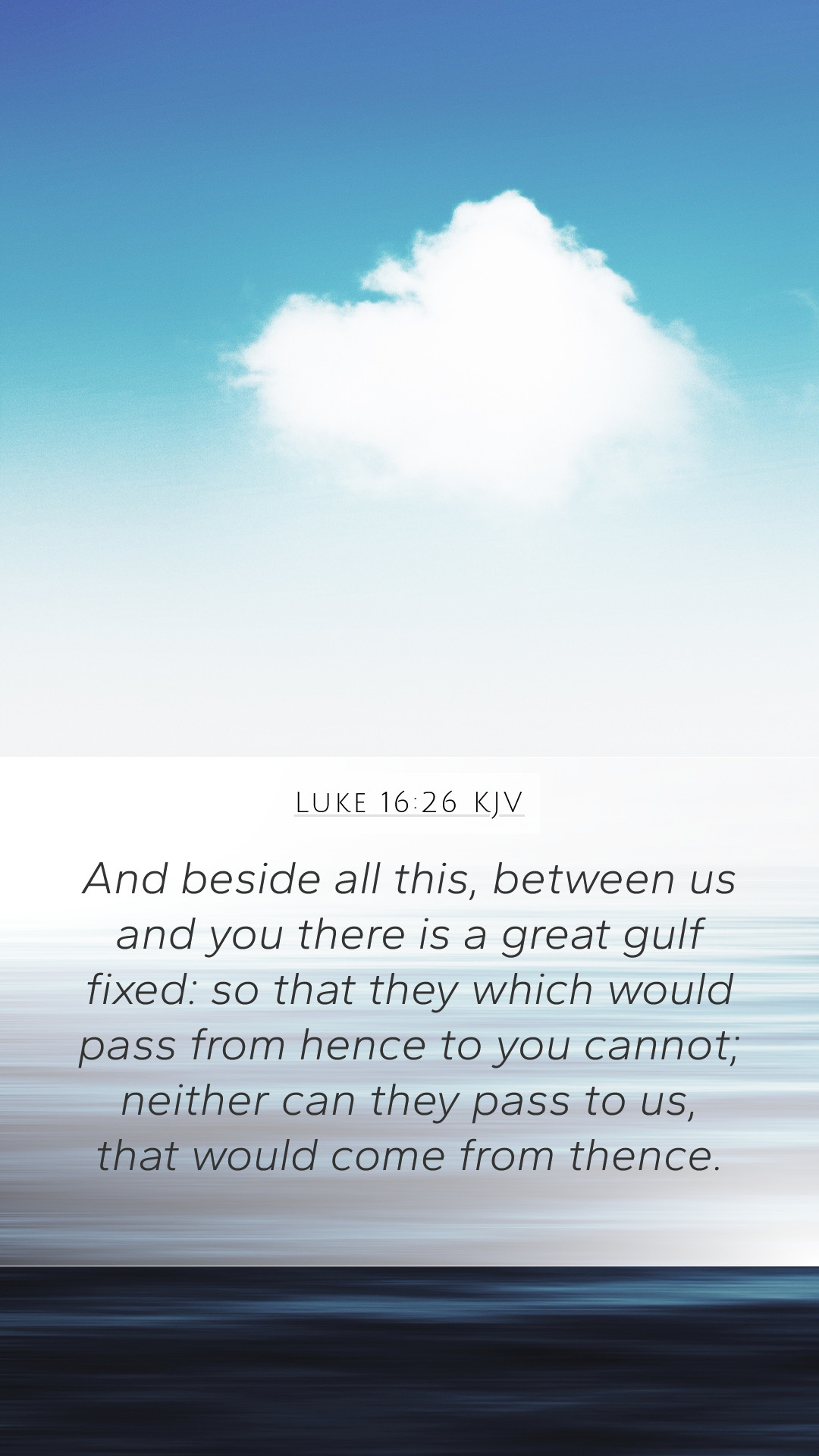Understanding Luke 16:26
Luke 16:26 reads: "And besides all this, between us and you there is a great gulf fixed: so that they which would pass from hence to you cannot; neither can they pass to us, that would come from thence."
This verse is part of a parable told by Jesus about the rich man and Lazarus. It serves as a potent reminder of the consequences of our earthly actions and the permanent nature of our spiritual state after death. Below, we explore various insights from renowned public domain commentaries to provide a comprehensive understanding of this scripture.
Verse Analysis
This verse emphasizes the existence of an insurmountable barrier between the righteous and the condemned after death. The "great gulf" signifies the finality of judgment and the separation between heaven and hell. The context is critical for grasping the essence of this teaching. Here’s a breakdown:
- Matthew Henry's Commentary:
Henry emphasizes that the gulf represents not only a physical separation but a spiritual and moral one. The suffering of the rich man after death serves as a reminder of the choices made in life.
- Albert Barnes' Notes:
Barnes highlights that the parable illustrates the irrevocable state of the souls of the deceased. Once judgment is passed, there is no crossing over to remedy one’s fate. He notes that this serves as a solemn alert against complacency in spiritual matters.
- Adam Clarke's Commentary:
Clarke provides insights into the implications of the 'great gulf.' He argues it symbolizes the tragic reality of lost opportunities—a zone where no one can cross over to eternal life once separated due to choices made on earth.
Key Themes
The following themes are evident in Luke 16:26:
- Final Judgment:
The verse underscores the concept of finality in judgment. After death, one's fate is sealed, emphasizing the urgency of making wise choices during life.
- Consequences of Actions:
It illustrates that earthly actions have eternal consequences, reminding believers of the significance of living righteously.
- Divine Justice:
The great gulf signifies God's justice in action; the separation is a direct result of choices made, and it is an unchangeable truth.
Cross References
This verse connects with several other scriptures that elucidate similar themes:
- Matthew 25:46: "And these will go away into eternal punishment, but the righteous into eternal life."
- Hebrews 9:27: "And as it is appointed unto men once to die, but after this the judgment."
- Revelation 20:15: "And whosoever was not found written in the book of life was cast into the lake of fire."
Application to Daily Life
Applying Luke 16:26 to everyday life encourages a reflective attitude towards our spiritual choices:
- Consider the permanent effects of our actions as we live in accordance with our values and faith.
- Embrace urgent spiritual growth and outreach to others, understanding the implications of this teaching.
- Engage in discussions within bible study groups or online bible study forums that challenge and deepen your understanding of such passages.
Conclusion
In conclusion, Luke 16:26 serves as a vital warning about the consequences of our earthly choices and the reality of eternal separation from God for the unrepentant. Understanding this scripture through the lens of respected commentators offers profound insights that can enhance our bible study insights and enhance our commitment to living out our faith.
For more resources on how to interpret Bible verses and apply them to daily life, consider seeking bible study guides and tools that facilitate in-depth study and reflection.


